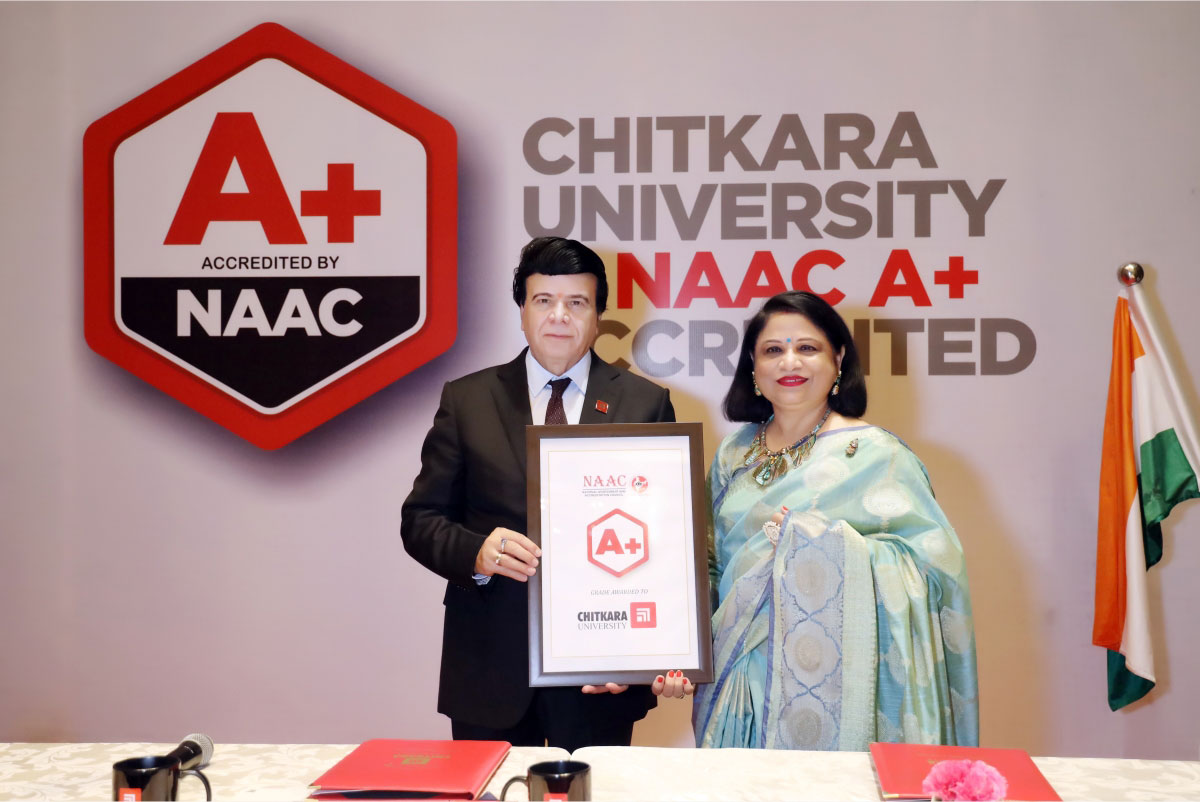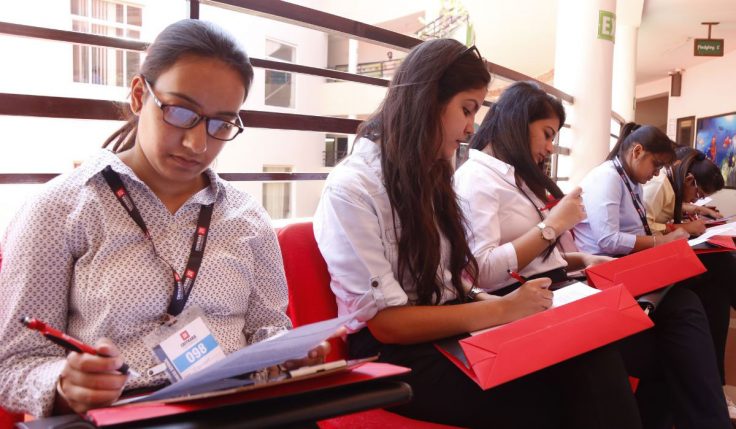Chitkara University has been awarded the rating of A+ by the prestigious National Assessment and Accreditation Council (NAAC), which places it among the 5% of higher education institutions (HEIs) in India to be granted such a coveted grade. The University scored a Cumulative Grade Point Average (CGPA) of 3.26 on a 4-point scale.
The Peer Team visit was completed between August 30th, 2021 and September 01st, 2021. The detailed score along with grade card was issued by NAAC on September 07th, 2021 after 81st Standing Committee/Executive Committee of NAAC. Chitkara University has been accredited with A+ grade for five years upto September, 2026.
The University has been awarded 3.8 grade point for Curricular Aspects, 3.06 for Teaching Learning and Evaluation, 2.71 for Research, Innovations and Extension, 3.56 for Infrastructure and Learning Resources, 2.85 for Students Support & progression, 3.62 for Governance, Leadership and Management and highest grade point of 3.95 for Institutional Values and Best Practices. The overall grade awarded to the University is 3.26 on a 4-point scale with A+ grade.
The university has been praised for three major features by the Peer Team. They are: good infrastructure for educational innovation and research; a neat and clean, green, and well-maintained campus; and the location of the institute is in a well-developed urban area with good placement opportunities.
On the occasion, Dr. Ashok K Chitkara, Chancellor, Chitkara University said, “It is the hard-work of our students, staff and faculty that resulted in securing this recognition. Moreover, the university has a well-defined research promotion policy which has resulted in the development of state-of-the-art advanced facilities. CURIN has multi-disciplinary advanced facilities supported by research funding from government agencies such as DST, DRDO, etc. to the tune of 37.24 crore. The research scholars and faculties are provided seed money for undertaking research and filing patents.”
Dr. Madhu Chitkara expressed her sincere thanks to all stakeholders and said, “The curricula are developed following standardised procedures and are revised at regular intervals by taking feedback from all our stakeholders. The local, regional, and global developmental needs regarding employability and entrepreneurship are considered while designing the course. Experimental, participative, and project-based learning are in practise through blended learning. We have adopted a flexible CBCS system that gives freedom to the students to undergo a multidisciplinary approach. The assessment process is well defined to evaluate the attainment level in critical thinking and problem-solving skills through programme-specific learning.”
Established in 1994, NAAC is an autonomous body of UGC which assesses and accredits Higher Education Institutions (HEIs). NAAC has identified a set of seven criteria to serve as the basis of its assessment procedures: Curricular Aspects; Teaching-learning & Evaluation; Research, Innovations & Extension; Infrastructure & Learning Resources; Student Support & Progression; Governance, Leadership & Management; and Institutional Values & Best Practices.
By studying in an institution that is NAAC accredited, students get a chance to learn in a cutting-edge environment and earn a degree that will have global recognition. They get instant recognition as an alumnus of a credible institute and get better placement opportunities as the industry prefers hiring with higher-graded institutions.
The university, through NAAC accreditation, gets to know its strengths, weaknesses, and opportunities through an informed review process. The higher NAAC Grade of the university promotes various intra & inter-institutional interactions.
Dr. Archana Mantri, Vice Chancellor, Chitkara University said, “The university practices Global Week for students and faculty exchange programs with foreign academic institutions. Various dynamic collaborations have been established through the internationally funded research projects, international conferences and cultural immersion across the campus. This best practice has had a significant impact on a large number of global experts (250) and students (25000), several value-added courses (100) have been introduced through this best practice.”
Dr. K. K Mishra, Director, Accreditation & Quality Assurance Cell, said “According to the old scheme, which was followed till 2017, the whole evaluation was based on an overhauled visit by a peer team, and under the current process, 70% of the evaluation is based on data from the institution and university that is evaluated by a third party. That makes it even harder to be accredited. The NAAC accreditation will create new avenues for the university and its students”.






